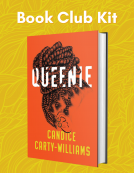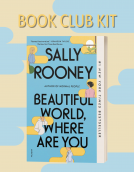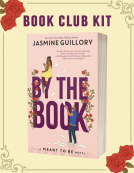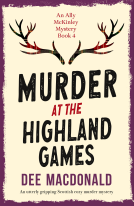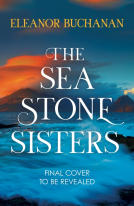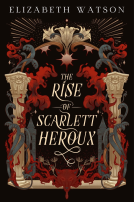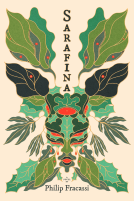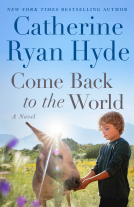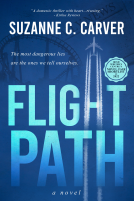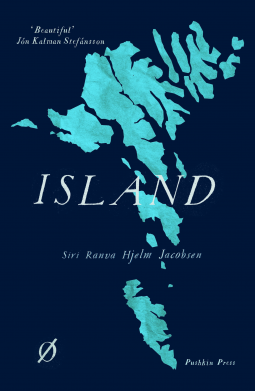
Island
by Siri Ranva Hjelm Jacobsen
This title was previously available on NetGalley and is now archived.
Send NetGalley books directly to your Kindle or Kindle app
1
To read on a Kindle or Kindle app, please add kindle@netgalley.com as an approved email address to receive files in your Amazon account. Click here for step-by-step instructions.
2
Also find your Kindle email address within your Amazon account, and enter it here.
Pub Date Sep 07 2021 | Archive Date Jul 28 2021
Talking about this book? Use #Island #NetGalley. More hashtag tips!
Description
Lush, lyrical prose transports the reader.
Family brings the young woman back to the Faroe Islands - the windswept, rocky northern archipelago where she has never lived but which she has always called home. There she finds her stories entwining with those of her ancestors as she searches for a way to connect with the culture and her kin. Rooted in the wild beauty of the islands and the author's own history, this is a bewitching tale of exile, homecoming, and what it means to belong.
Advance Praise
"Island talks about places as if they were people, of fjords as if they were the wrinkles of our souls." -- Valeria Parrella, Grazia
"Prose that is as deep as the sea surrounding everything." -- Corriere della Sera
"An ode to the legends we still need." -- La Repubblica
"Dense and evocative, and manages to combine organic and lifeless matter with the fantastic." -- Wired.it
Available Editions
| EDITION | Other Format |
| ISBN | 9781782275800 |
| PRICE | $16.95 (USD) |
| PAGES | 160 |
Average rating from 36 members
Featured Reviews
Island is a fascinating story of a Danish woman's connection with her Faroese family and culture. The story follows multiple generations and is told in two main time frames: the narrator in the present and her grandmother's experience leaving the Faroe Islands and immigrating to Denmark.
At first, the story felt somewhat convoluted, with the stories intertwining between present and past and the characters talking mainly about previous memories. Before really knowing the characters, I had a bit of difficulty knowing exactly when and who was being discussed.
That said, any struggles I had were ultimately worth dealing with because the story unfolds beautifully. The descriptions of her homeland, the uncomfortable interactions with relatives, the emotions around death, family, and homecoming. It all blended together into a powerful statement about the meaning of "home" and the stories we tell about and around it.
Thanks to NetGalley and Pushkin Press for providing me this book to review.
I found Island a surprisingly absorbing story - I'm not sure what I expected, but I didn't expect to read this so quickly! It is a compelling description of the stories that are told about 'home' and 'family', what it means to different people within and between generations, and the stories families tell each other and which are inherited by younger generations.
It took a few pages to get used to the switching of time periods, but I found it a really interesting way of illustrating the older generation's experiences from when they were a similar age to the narrator (a grandchild of a couple who emigrated from the Faroes to Denmark). It gave them the opportunity to tell their own story and highlighted the differences between the generational experiences.
I found a lot to reflect on in Island. What does 'home' mean, and who really feels 'at home'? Does feeling 'at home' really matter? As an aside, I also really enjoyed being taken back to the beautiful Faroes!
Siri Ranva Hjelm Jacobsen was born into the third generation of a Faroese family living in Copenhagen. There are many autobiographical elements that I noticed during the course of reading Island. It’s a short book, but it gives an interesting ethnographical depiction of someone trying to find her identity as a young Danish woman who traces her roots in the Faroe Islands. The unnamed narrator describes the difficulties of migration, even between Faroe Islands and Denmark which are two places that still belong to the Scandinavian sphere, and basically two entities that are constituent of the Kingdom of Denmark.
At first, it was a bit difficult for me to follow the story, as it does not follow the usual three-act structure. Rather, the timeline jumps frequently between the time Marita and Abbe—the narrator’s grandparents migrated from the Faroe Islands in the event after the end of the Second World War and the present moment after the passing of Marita. Following this structure, the stage is set to explore the complexities experienced by first-generation migrants who pave the structure, second-generation migrants who already possess some degree of assimilation into the local culture, and third-generation migrants who—in theory—should be fully assimilated. But it does not seem the case with the narrator who seems conflicted about her identity with extended family members still claiming to be Faroese in an environment where Danish is predominantly spoken.
This is not the kind of story that I’d enjoy in fictional style, as it leaves me hanging on throughout the story with its ambiguous structure. Family history could be told in the form of either a memoir or a fictionalised account such as this, however, it strikes me as a too-personal story for fiction. There is no major conflict, as the conflict itself is built into some sort of threads that continue to tangle throughout the story, and this might be the reason why it’s difficult to retain focus on reading this book.
The author particularly highlights many mundane details of everyday life, such as the Faroese and the Danish habits that the narrator particularly finds strange. An example of this would be how she finds it terribly difficult to memorise the names and positions in the family tree of some of her extended family members, which I could relate to some extent as I grew up in a similar environment. There are also many other descriptions of the complexities of a person's situation growing up with multiple identities and languages. Sometimes even migration inside the same country which is governed by the same political actors could also result in an identity crisis such as in the case of the narrator’s experience.
I find the prose beautiful, even though this is a work in translation. The sentences read like poetry, that I think Caroline Waight has put major efforts to render the English translation into something close to the original. Besides that, there are also many vernaculars from Faroese and Danish that are put into sentences without making the story losing its context, something that needs to be praised. This book would be an enjoyable treat to be read in a single sitting, considering the length and the way it’s being presented as a story without a three-act structure. If you enjoy reading the geographical and ethnographical description of a place, or simply want to know more about the Faroe Islands, this will be an interesting read.
 Chiara L, Reviewer
Chiara L, Reviewer
“I didn’t dare ask, how do you migrate? What do you do about all the things that quiver?”
“He did live in the future, right up until he began to live in the past. When I think of it that way, he was a migrant through and through”
Where is home? a compelling intergenerational tale investigating identity, migration and homeland. A young woman, third generation migrant, is torn between her identity as a modern Danish woman and her idealized family identity as a Faroese descendant, a mute, frail, invisible legacy. Her recollection and reflections mingle with the stories of her grandparents and parents – stories which are the thread that make up her ties to this Ithaca of the soul, ever longed for and ever elusive, and help her reconnect. The narration is beautiful, from the atmospheric descriptions of the rugged landscapes and interiors crystallised in time to the wonderful storytelling in which nature gives birth to legends and people become mythical protagonists of family sagas. Her analysis of the painful, confused condition of migrant is poignant and thought-provoking. A fragmentary, loose structure that is not always easy to follow but interesting and evocative.
My thanks to Pushkn Press and NetGalley for an ARC of this novel in exchange for an honest review.
 Melissa J, Librarian
Melissa J, Librarian
Island is a really evocative novel about a Danish girl with Faroese heritage who comes back to the islands for a funeral. I found the descriptions of the Faroese life and landscapes to be really atmospheric and the author did a great job in making the reader feel part of the unique life of the islands. I love most things to do with the Faroe Islands, so this definitely fed my interest in the islands and makes me want to visit them again.
Something about the book that I really loved was the way in which the author describes how it feels to leave your country of birth and make a life for yourself somewhere new, but always feeling a yearning and a tie to your ‘home’ country. As an expat, I really identified with this sentiment and how sometimes ‘home’ can begin to feel foreign.
One aspect that I did find difficult about the book was the changes between point of views and stories- these were sometimes unclear. This could have been down to how the review copy was formatted on my kindle, rather than a creative choice, but it did interrupt my enjoyment of the story.
 Reviewer 854528
Reviewer 854528
"I didn't dare ask, how do you migrate? What do you do about all the things that quiver?
Probably no one at the table could answer that question. Who are we? The Faroese, those who stayed, and us, the blood guests, biological seeds sown by migrants?"
What's it like, to feel out of place, to not feel home at home, to feel more yourself in a land that should have been your home? Jacobsen's "Island" explores the relationships within families, the bonds we have to our home and our ancestry. It's a look into the ways migration shapes the lives of future generations and their search for a home that should feel familiar, yet in which they still feel like intruders—like tourists.
The family from the Faroes appears mundane – they are not war heroes, or famous politicians. They are simply a family, one of many affected by the second world war, seeking opportunities, wishing for a safe place to plant trees and raise their children. Yet through the eyes of the protagonist, the memories of a child, they gain a certain magic. The family holds its secrets and traumas, but they are loved for them, despite them, nonetheless. It's the interwoven connection between life and love and death; the way a place, a moment, a person can be home.
Jacobsen's prose through the lens of Waight's translation is hauntingly beautiful, It builds a painting of greys, blues, and greens, islands surrounded by islands, floating and standing. My one gripe was the graphic descriptions of abortion and birth, which made me squeamish, though I suppose they can also attest to how impactful Jacobsen's prose was.
"Island" is a story about the simplicity of life—and the complexity of it. It's a story about how the smallest elements of our surroundings shape us, how every decision affects those who will come after us. Most of all, it's a story about searching for—and finding—home.
 kATHLEEN G, Reviewer
kATHLEEN G, Reviewer
I enjoyed this for the insight into life in the Faroe Islands but struggled a bit to connect what felt more like snippets than narrative, It's a dual time line novel between present and the 1930s. Thanks to Netgalley for the ARC. An interesting read.
 Katie N, Librarian
Katie N, Librarian
While not quite my cup of espresso, I do find so much beauty in stories of generations within the same family. They always tell the story of a legacy rather than a plot or adventure. It always shows how our communities impact our families and vice versa.
 Reviewer 821820
Reviewer 821820
Island by Siri Ranva Hjelm Jacobsen is understated and poetic and a little melancholic, too, as it follows two timelines in the same family: a Danish woman who is returning to the Faroes to visit family and that of her grandmother who immigrated to Denmark generations before.
Island is the literary equivalent of flipping through a family photo album filled with distant relatives that you've either never met or of whom you only have vague memories. Each small chapter in this novel is a snapshot in that photo album, a marker of a person or event or place in time that the protagonist is tenuously connected to by blood and collective memory, and also by her longing to connect to her origins while feeling outside of it all. In glimpsing through the generations of this family, we experience the fleetingness of memory, and the reality that some memories will disappear when those who remember are gone. All of these impressions build to a larger picture of the dynamics of this family, and also examines what "home" actually means, why we leave it, and why we return.
 Melanie B, Reviewer
Melanie B, Reviewer
Island is a nostalgic intimate walk through a family's past. Told through three different timelines, it's a story about a generation leaving to start a life somewhere else, and another one coming back years later, trying to reconnect with the land and her mother's side of the family. It's a novela about family, indentity and belonging.
It reads like a sensory experience, the descriptions are vivid, lyrical and you can picture the Faroes's landscape, and almost feel the air against your skin. It's almost like a walking meditation.
It did feel a little scattered with its non-linear narrative and it was sometimes hard to keep track of which character's memories we're in, past or present.
I still enjoyed it. I learned a fair amount about the islands culture, and found the contemplative still quite relaxing. Being a child of immigration myself, there were thoughts I definitely could relate to. This feeling of being a tourist in your own country, the need to find a connection...
Thanks to @netgalley and @pushkin_press for the e-arc.
 Reviewer 823951
Reviewer 823951
A young Danish woman explores her family's past and Faroe Islands ancestry across three generations. In the process she uncovers details of the passions and challenges her grandparents and their siblings confronted when they were her age, and considers universal themes of home and identity.
Lush, lyrical prose transports the reader.
Family brings the young woman back to the Faroe Islands - the windswept, rocky northern archipelago where she has never lived but which she has always called home. There she finds her stories entwining with those of her ancestors as she searches for a way to connect with the culture and her kin. Rooted in the wild beauty of the islands and the author's own history, this is a bewitching tale of exile, homecoming, and what it means to belong.
⭐️⭐️⭐️⭐️
 Vansa D, Reviewer
Vansa D, Reviewer
Absorbing, and quick read, ostensibly about the lives of people in the Faro Islands, but it could be about people anywhere-those who leave, and those who stay. The author perfectly captures the dynamics of families and family gatherings-we all know what those are like, with relatives from all over being pointed out to you, usually qualified by how well they've done (or not), great aunts and third cousins and everyone in between. I love the nuances and cadences of conversations that she captures so perfectly. It reminded me of my visits to my grandparents' village, and the swirl of conversation-the ones about black sheep and ne'er-do-wells in the family being the most interesting, of course! The book follows two narrative strands-it starts with the narrator and her parents visiting the Faro Islands for her grandmother's funeral, and deciding to visit the islands, tracing their family history. The other narrative strand is a recounting of the narrator's grandmother's life, and all the people and history it intersects with. Both narrative strands are fascinating and moving, with immersive descriptions of the landscapes -one of her descriptions of a rainy football match and I could practically feel the spray of the rain on my face and the wind whipping my hair. It's interesting to read about the position of the Faro Islands-I didn't know much about them at all, that there exists an uneasy state of truce, for instance, with the loss of the Faroese language being an issue close to the heart of many Faro Islanders. It's an interesting perspective to get, while also remaining universal in its evocation of the ties that bind us, and the strong backbone of all the women who keep us going.
 Tracey E, Librarian
Tracey E, Librarian
The Faroe Islands have always intrigued me and on my bucket list of travel destinations, so this book was a must-read. It follows three generations of related women flipping between the different timelines, with the eldest generation dreaming of leaving the suffocating Islands and consequently achieving this by running away to Copenhagen. The middle generation being brought up as primarily Danish with not much interest in her family history whilst the youngest is fascinated with her Faroese past and suffers badly from home-sickness for a place she’s never lived. A fascinating look at the interpretation of “home”.
 Reviewer 68310
Reviewer 68310
beautifully written exploration of identity, family, and the connections to a minority/not-so-well-represented culture as the child of immigrants.
When I saw Island on NetGalley I requested it because I thought it was about Iceland and I wanted to prepare for a trip there. It wasn’t, but that didn’t diminish my interest while reading it.
The book was actually about the Faroe Islands—islands located between Scotland and Iceland and, like Iceland, was a Danish subject. The book is told in split timelines about a young woman returning to her home island and her grandmother who had left it.
The timelines could be a little confusing, but the book itself was very well written and there were scenes (like the dancing scene) that were so beautifully woven together—really wonderful writing. While reading, I was simultaneously learning about the family’s history and the history of the islands.
I enjoyed this new-to-me author and getting to get a taste of this different history and culture. Thanks to NetGalley for the opportunity to read and review this book.
Readers who liked this book also liked:
We Are Bookish
Literary Fiction, Multicultural Interest, Women's Fiction
We Are Bookish
Biographies & Memoirs, Nonfiction (Adult), Parenting, Families, Relationships
We Are Bookish
General Fiction (Adult), Literary Fiction, Women's Fiction
We Are Bookish
Mystery & Thrillers, OwnVoices, Teens & YA
We Are Bookish
General Fiction (Adult), Romance, Women's Fiction
We Are Bookish
General Fiction (Adult), Romance, Women's Fiction
